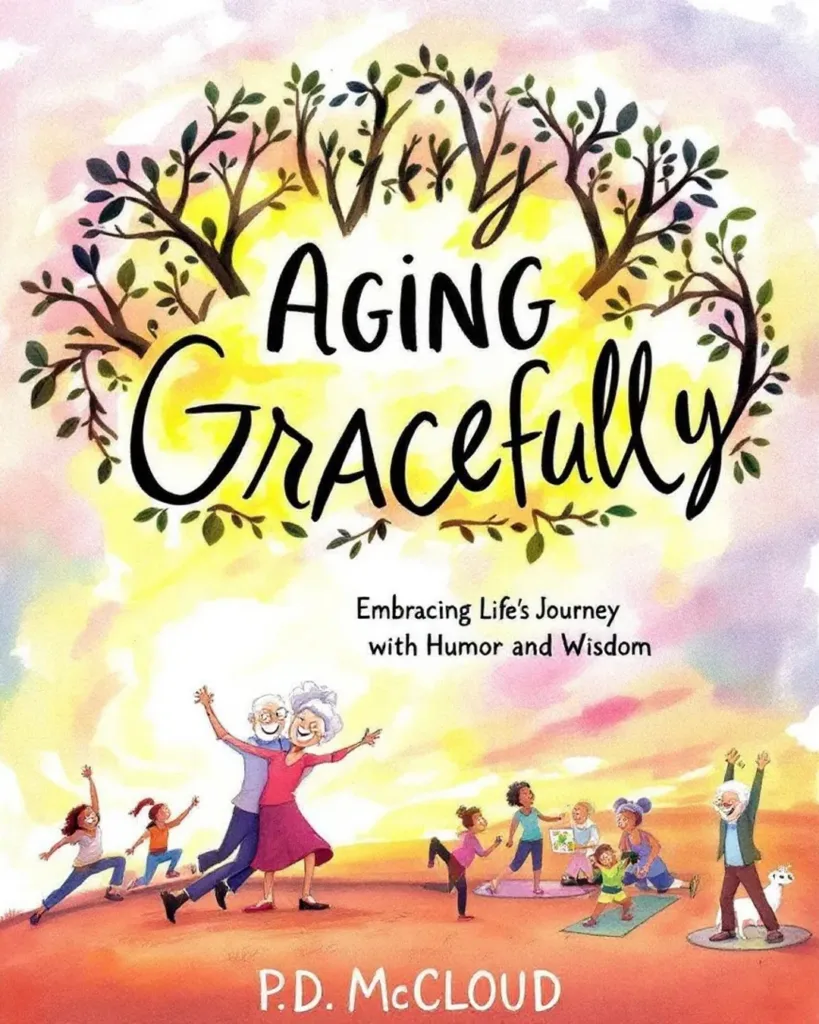Imagine life as a series of seasons, each bringing its own beauty and challenges. Just as we adapt to summer’s warmth or winter’s chill, we must also learn to adapt to the natural changes that come with aging. These changes—whether physical, mental, or emotional—are part of the journey. By embracing them with an open heart, we can navigate this new season of life with resilience, wisdom, and grace.
In this post, we’ll explore how to accept and adapt to the changes that accompany aging, providing strategies to help you thrive in this transformative stage of life.
Understanding the Nature of Change
Change is inevitable, but it doesn’t have to be overwhelming. Aging brings a series of natural transitions, such as slower reflexes, graying hair, or shifts in cognitive sharpness. These changes aren’t a sign of weakness but a reminder of life’s evolving nature. Recognizing what’s normal in the aging process can reduce fear and anxiety. For example, occasional forgetfulness is often a natural part of aging and not necessarily a sign of cognitive decline. Education and awareness empower us to differentiate between normal aging processes and those that may require medical attention.
Recognizing what’s normal in the aging process can reduce fear and anxiety. For example, occasional forgetfulness is often a natural part of aging and not necessarily a sign of cognitive decline. Education and awareness empower us to differentiate between normal aging processes and those that may require medical attention.
Physical Adaptations: Staying Active and Strong
Aging brings noticeable changes to the body, but maintaining physical activity is crucial to counter health risks and lifestyle constraints associated with these shifts. Incorporating activities like yoga, Pilates, and swimming can significantly benefit flexibility, strength, and balance, while also reducing the risk of injury.
Build a New Fitness Routine
It’s essential to customize exercise routines to suit individual needs as the body undergoes changes:
- Yoga: This activity enhances flexibility and reduces stiffness, promoting joint health and muscle endurance.
- Tai Chi: Known for improving balance and fostering mindfulness, Tai Chi minimizes fall risks and enhances coordination.
- Swimming: Offering a low-impact cardiovascular workout, swimming strengthens muscles and joints without excessive strain.
Listen to Your Body
The body’s responses and signals are vital guides. Pay attention and adapt exercises to avoid over-exertion. If certain activities feel too intense, consider gentler alternatives to prevent injury and strain.
Home Modifications for Safety
Adjusting living spaces to account for physical changes can greatly improve safety and ease of movement:
- Install grab bars in bathrooms: These provide support and prevent falls.
- Ensure adequate lighting throughout the home: Proper illumination helps to avoid accidents.
- Use non-slip mats: These are especially beneficial in areas prone to moisture, like bathrooms and kitchens.
By focusing on physical adaptations through tailored exercise, mindfulness, and environmental modifications, the challenges of physical aging become more manageable. Such proactive measures contribute to an active, balanced lifestyle despite the natural aging process.
Mental Adaptations: Staying Sharp and Engaged
As individuals age, mental adaptations can be crucial to maintaining mental acuity and engagement. Adopting new strategies can help keep the mind sharp and focused, combating age-related cognitive decline.
Challenge Your Brain
Engaging in activities that stimulate the mind is essential for cognitive health. Consider incorporating these practices:
- Learning a New Language or Skill: This not only challenges the brain but also opens new perspectives and cognitive pathways.
- Solving Puzzles or Playing Strategy Games: Activities like chess or Sudoku can enhance problem-solving skills and cognitive function.
- Taking Up Creative Hobbies: Engaging in activities like painting or writing can enhance creativity and mental flexibility.
Practice Mindfulness and Meditation
Mindfulness and meditation practices encourage living in the moment and help in accepting changes without judgment:
- Mindfulness: This practice helps individuals remain present-focused, reducing stress and promoting emotional regulation.
- Daily Meditation: Regular meditation sessions can build emotional resilience, helping in gracefully embracing life’s transitions.
Lifelong Learning
Continuing education is a powerful tool for keeping the brain active and engaged:
- Enroll in a Class or Workshop: Participating in classes or workshops on topics of interest provides mental stimulation and a sense of achievement.
- Learning for Purpose and Accomplishment: Engaging in learning activities keeps the mind agile and adds to personal fulfillment and purpose.
By challenging the brain, practicing mindfulness, and pursuing lifelong learning, individuals can adapt to mental changes more smoothly, ensuring a fulfilling and vibrant life despite the challenges of aging.
Emotional Adaptations: Accepting and Embracing Change
As people age, emotional adaptations become essential to embracing life’s transitions, such as retirement or an empty nest. Successfully navigating these emotional shifts can significantly influence maintaining a proactive and positive outlook on life.
Reframe Your Perspective
Shifting focus from losses to gains helps embrace the positives that come with aging:
- Wisdom and Experience: Embrace the accumulation of knowledge and life lessons over the years.
- Unique Perspective on Life: Acknowledge the enriched worldview gained through diverse life experiences.
Build a Support System
Staying connected with supportive networks is crucial for emotional well-being:
- Friends and Family: Keep regular contact with loved ones to foster a sense of belonging and security.
- Community Groups: Engage in community or support groups that encourage sharing and understanding.
- Open Conversations: Talking about emotions with trusted individuals aids in processing transitions more effectively.
Cultivate Gratitude
Adopting daily gratitude practices can profoundly shift mindset and influence emotional health:
- Reflect Daily: Spend a moment each day reflecting on small joys and positive aspects.
- Transform Mindset: A consistent gratitude practice can build a more positive outlook and reduce stress.
By reframing perspectives to focus on growth and support, and through the cultivation of gratitude, individuals can adapt emotionally to changes brought by aging, leading to a more fulfilling and enriched life experience.
Inspiring Stories of Adaptation
Many individuals have found remarkable ways to adapt to the challenges of aging, embodying resilience and creativity in their journeys.
A Centenarian’s Yoga Journey
One inspiring story is that of a 90-year-old who took up yoga to improve balance and flexibility. Initially hesitant, she discovered not only physical benefits but also a profound sense of peace and clarity as a result of her practice. This decision transformed her daily routine, allowing her to maintain independence and connect with a community of like-minded individuals who found joy and calm through similar practices.
A Late-Life Artist
Consider the story of a man who embarked on a new passion after retiring at 70 from a long corporate career. He began painting as a hobby, which quickly became a profound passion that not only brought immense personal joy but also inspired others. His work, praised for its depth and vivacity, now graces local galleries, demonstrating that artistic expression can flourish at any age and transforming his late life into a vibrant creative period.
The Volunteer Mentor
After struggling with loneliness post-retirement, a former teacher found new purpose by mentoring young students in her community. Her life experiences and compassionate approach became invaluable to the students she guided. This act of mentorship not only helped ease her transition into retirement but also underscored the profound impact of sharing wisdom and supporting the next generation. Her story reflects how emotional adaptations and generous sharing can rekindle one’s sense of purpose and community involvement.
These stories highlight that adaptation in later life can lead to personal growth and fulfillment, proving that it is never too late to reinvent oneself and find new avenues of joy and contribution. Each individual’s journey demonstrates that with resilience and openness to change, the later stages of life can be as enriching as any other.
Strategies for Embracing Change
Successfully adapting to the changes that come with aging involves cultivating an attitude of flexibility and curiosity. Here are several strategies that can facilitate this adaptation process:
Stay Curious
- Beginner’s Mindset: Approach new experiences with the eagerness of a student, open to learning and growth. This mindset can transform challenges into opportunities for discovery.
- Embrace New Experiences: Engage in activities that push you outside your comfort zone, fostering continual learning and adaptability.
Be Kind to Yourself
- Accept Change as Natural: Recognize that change is an inherent part of life and doesn’t diminish your value or capabilities. Self-compassion helps in navigating these transitions smoothly.
- Positive Self-Talk: Replace self-critical thoughts with affirming and supportive internal dialogue to boost emotional resilience.
Seek Professional Support
- Consult Healthcare Professionals: Providers such as doctors or therapists can offer guidance and support for managing the physical and emotional aspects of aging.
- Counseling and Therapy: Professional counseling can help understand and process the emotional intricacies of aging, enhancing mental well-being.
Embracing change as a life constant allows you to navigate aging with grace and openness. These transitions, while challenging, also offer the potential for growth, connection, and joy. By maintaining an open mind and a readiness to adapt, you can uncover beauty and purpose in every stage of life.
Invitation for Reflection
Reflect on the changes you’ve encountered as you’ve aged and the ways you’ve adapted to them. Sharing your experiences not only validates your journey but also contributes to a collective wisdom that can inspire others. Next, explore how humor can serve as a powerful tool in navigating life’s challenges, highlighting its role in enhancing resilience and joy.
#aginggracefully #mindfulness #lifelonglearning #selfcare #healthyaging #wisdom #resilience #mentalwellbeing #emotionalhealth #embracingchange


